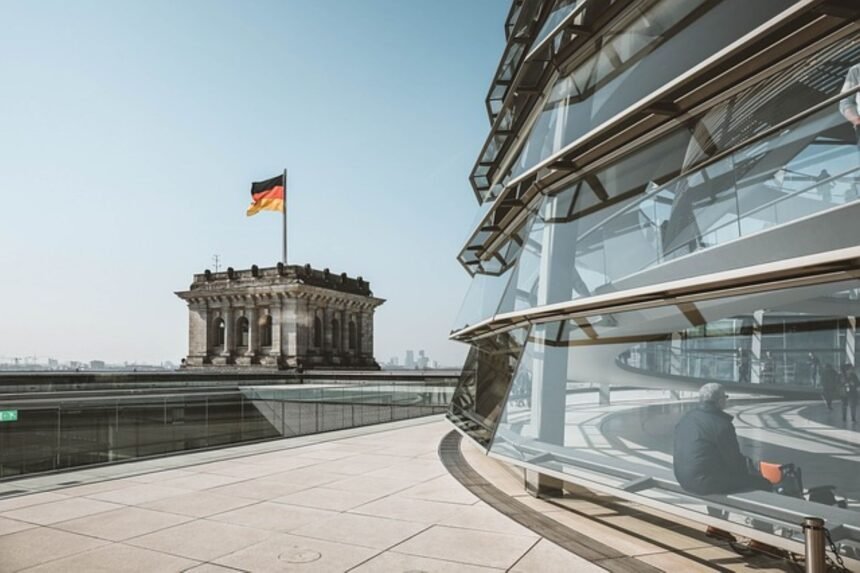For Albania, aligning with the European Union’s environmental standards remains one of the most significant challenges on its path towards membership. In this crucial endeavor, Germany stands as one of Albania’s most active partners.
Chapter 27: A Major Hurdle and German Support
Chapter 27 of the EU accession negotiations, which covers areas like waste management, wastewater, energy, and climate protection, demands substantial infrastructure investments and administrative readiness to implement European laws. Germany is a pivotal supporter through projects funded by the German Development Bank (KfW) and the German Agency for International Cooperation (GIZ), coordinated with the European Union. Approximately 70% of German financial support is concentrated in the energy sector, while 30% is allocated to sustainable urban development, including waste treatment, recycling, and local environmental infrastructure.
“The objectives of economic development and nature protection must be combined and developed through an inclusive dialogue, also within the framework of the EU integration process,” stated German Ambassador to Tirana, Karl Bergner. “These are fundamental requirements for many chapters that will be negotiated,” he added.
Investments for a Cleaner Environment
For years, urban waste in southern Albania has been a source of pollution and concern. In Vlora, a popular summer tourist destination, a new landfill in Sherishtë recently became operational. This €25 million investment includes a €12 million loan from KfW and the remainder as a grant. The landfill is designed to handle up to 600 tons of waste daily during the tourist season and will replace an existing deposit frequently plagued by fires.
“I am happy that with the work done by the municipality and, of course, in full cooperation with the German Embassy and KfW, we managed to make the first cell of the waste disposal site functional,” said Ermal Dredha, Mayor of Vlora Municipality.
Also in the south, in Orikum, another German-backed investment is nearing completion: a new wastewater treatment plant worth €5.3 million. It aims to be operational by September, serving around 53,000 residents.
Alternative Waste Management Models and Energy Focus
In contrast to urban areas, Roskovec is experimenting with an alternative waste management model aligned with circular economy principles. Organic waste from the fruit and vegetable market, previously destined for landfills, is now processed in a small composting center and converted into fertilizer for agricultural land. This initiative is part of the “EU for Circular Economy and Liveable Cities” (EU4CELC) project.
Electricity is the sector receiving the largest share of German support for Albania. One of the most strategic projects is the construction of the 400 kV Albania – North Macedonia transmission line, with a total value of €67.5 million. This project, implemented in cooperation with the Ministry of Infrastructure and OST (Albanian Transmission System Operator), involves building a new 130-kilometer line on Albanian territory, expected to be completed this year.
“These investments contribute to Albania’s economic sustainability,” said the German Ambassador in Tirana. The line aims to increase energy security, reduce network losses, and enable balanced exchanges with neighboring countries, as part of Albania’s integration into the European energy market. “This project means energy security, security in the energy system, but also that we are connected with all neighbors,” said Dorjan Sejamini, director for external projects at OST.
Long-Term Partnership and Rule of Law Focus
Beyond infrastructure investments, the German partnership in Albania also seeks to strengthen administrative and technical capacities. According to Ambassador Bergner, this is crucial to ensure that projects remain functional and sustainable even after international support concludes.
“This is a lesson we have learned from other countries: it is essential to strengthen local capacities to be able to manage projects after the Germans withdraw,” Ambassador Bergner emphasized. He noted that support would continue, especially in the EU integration process, including new opportunities like administrative partnerships to help Albania effectively implement EU legislation. “We will especially focus on issues raised, for example, in the latest EU progress report, in the areas of the so-called ‘fundamentals,’ which are: rule of law, good governance, and the fight against corruption,” the Ambassador added.
Germany remains not only the oldest partner in financial cooperation with Albania since 1988 but also the largest bilateral donor. To date, investments total approximately €1.2 billion, with over €400 million in the last decade alone. “This is another testament to Germany’s continuous and serious commitment,” concluded Ambassador Karl Bergner.







